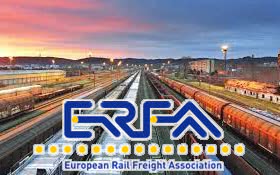
2022 was a very difficult year for the sector European rail freight and, given that the factors which led to these difficulties are still present, Support measures are needed to ensure that Modal shift targets set out in the European strategy for sustainable and intelligent mobility can be Achieved. This was highlighted by the European Rail Freight Association (ERFA), the association representing railway freight undertakings private individuals operating in Europe, taking stock of the trend of the sector's activity over the last 12 months.
 One year, 2022 - underlined the association, which has Extremely challenging for the freight industry on rail, which found itself exposed to increases without previous energy costs and was also confronted with a difficult situation due to the infrastructural works in Course on the entire European network. The ERFA has specified that, in some Cases, the cost of electricity increased to +1,000%, exorbitant rise that required more support to cope with this increase in costs. In this regard, The association noted that some developments have been recorded positive and, among them, last week's vote of the German Parliament to reduce electricity prices used by railways at 13 cents per kWh up to 90% of the historical or expected question. "This - remarked the ERFA - is a good example for other Member States to follow and it is important that it is now quickly approved by the European Commission'.
One year, 2022 - underlined the association, which has Extremely challenging for the freight industry on rail, which found itself exposed to increases without previous energy costs and was also confronted with a difficult situation due to the infrastructural works in Course on the entire European network. The ERFA has specified that, in some Cases, the cost of electricity increased to +1,000%, exorbitant rise that required more support to cope with this increase in costs. In this regard, The association noted that some developments have been recorded positive and, among them, last week's vote of the German Parliament to reduce electricity prices used by railways at 13 cents per kWh up to 90% of the historical or expected question. "This - remarked the ERFA - is a good example for other Member States to follow and it is important that it is now quickly approved by the European Commission'.
The association recalled that difficulties also persist determined by infrastructure works, which continue to represent a major problem for the railway companies of the cargo sector, forcing sudden changes or cuts of available capacity, often at short notice.
"In these difficult conditions - warned the ERFA - the possibility of waiving or reducing access fees the network remains a positive support where this measure has been Adopted. That said - the association specified referring to the ongoing review by the European Commission of the Implementation of the TEN-T core network - the regulation will expire December 31, 2023 and it will be important that next year is used to rethink pricing principles for rail freight transport companies. The regulation - according to ERFA - should be seen as a starting point of a broader discussion on charging principles for supporting modal shift at European level, including a sufficient support from Member States to managers infrastructure'.
"2023 - explained the secretary general of ERFA, Conor Feighan - will be an important year in terms of European legislation: we will most likely conclude the discussions on the revision of the TEN-T Regulation and we will present important new proposals, in particular the revision of the Train drivers directive and new management legislation of capabilities. It is important that the lessons learned in 2022 are at the center of the evolution of these important texts legal'.